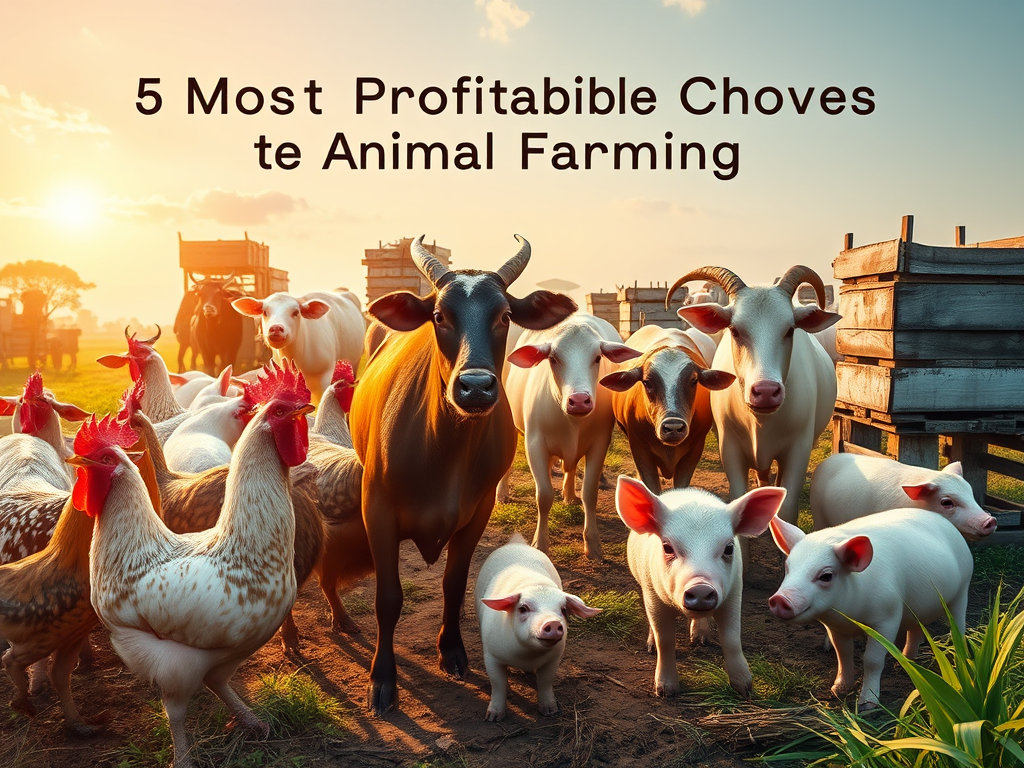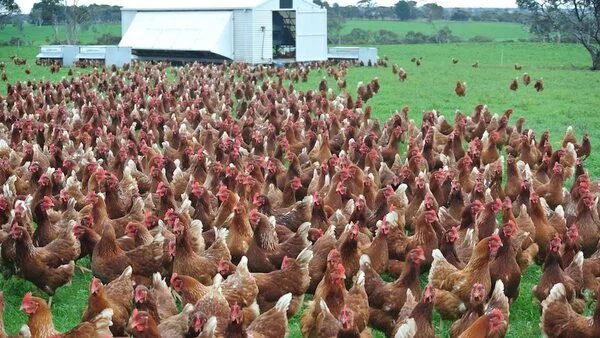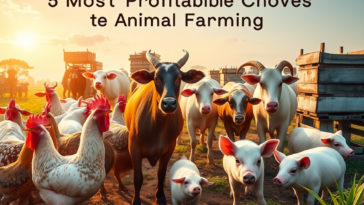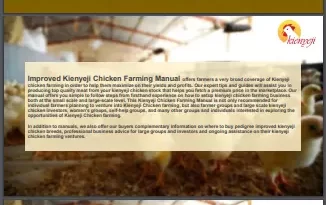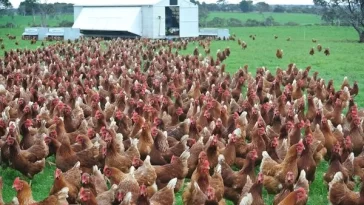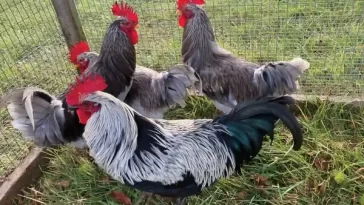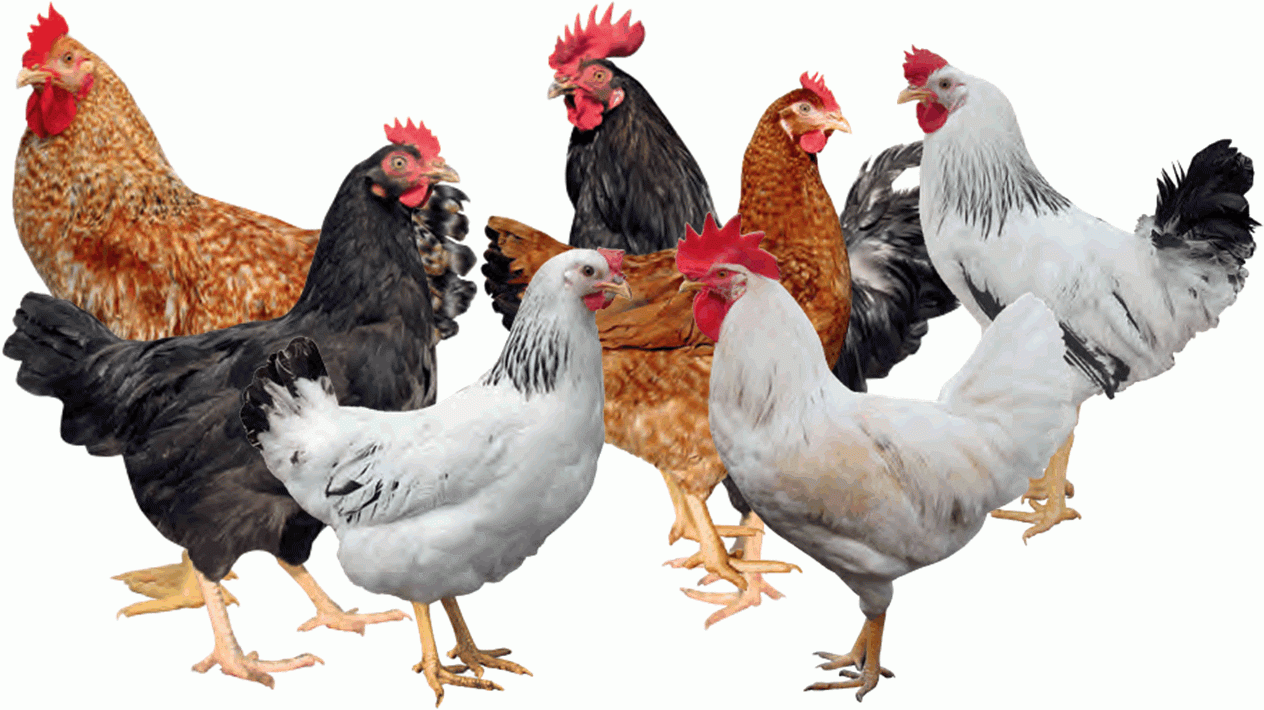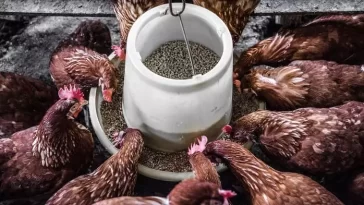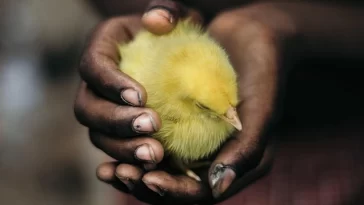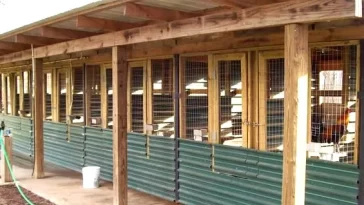kienyeji
Latest stories
More stories
-
Five Top Profitable Animal Farming Options in Kenya
Kenya’s 5 Most Profitable Choices for Animal Farming With animal farming becoming a popular investment option for business owners in both rural and urban regions, Kenya’s agricultural sector continues to be a primary source of income. The demand for animal goods, better breeds, and training opportunities is growing, making agriculture more profitable than ever. The following are five of the most lucrative animal farming enterprises in Kenya that you may consider, whether you are starting little or planning for the future. 1. Kienyeji Chicken Farming One of the quickest expanding agribusiness enterprises in Kenya is the cultivation of indigenous kienyeji […] More
-
391 Views
Maximizing Kienyeji Chicken Farming Profits – Buy Manuals today
Our Improved Kienyeji Chicken Farming Manual Housing, feed production, and expertise are the key factors that make Kienyeji poultry farming a profitable industry in Kenya, as it has become incredibly lucrative for both small and commercial farmers. The secret to success lies in two important aspects: proper storage and effective food preparation. Additionally, access to expert guidance through resources such as the Kienyeji Chicken Breeding Handbook can make a difference. This blog will discuss the advantages of these attributes and how the Kienyeji Chicken website provides the most valuable resources to help you maximize your farming opportunities. 1. The Kienyeji Chicken […] More
-
615 Views
Maximizing Profits with Improved Kienyeji Chicken Farming
Improved Kienyeji chicken farming is considered a very profitable venture due to several factors that make it attractive to both small and commercial farmers. Here are some reasons why advanced Kienyeji chicken farming stands out: 1. High demand for Kienyeji chicken products: Taste and quality: Compared to commercial chickens, Kienyeji chicken is known for its superior taste and texture. This makes it highly sought after in local markets and among consumers who prefer organic and conventionally raised poultry. Eggs: Eggs from Kienyeji chickens are also popular for their rich taste and health benefits. 2. Lower production costs: Food: Kienyeji chickens […] More
-
967 Views
Comparing Improved Kienyeji Chickens vs. Improved Kienyeji Chickens – Benefits and Differences
Kenyan and other East African poultry producers like kieenyeji chickens, often called indigenous or traditional chickens, because of their toughness, disease resistance, and environmental adaptability. Conversely, improved Kienyeji chickens are a selectively developed subset of traditional Kienyeji chickens. The two are contrasted as follows: Kienyeji Chicken Adaptability: Adaptable to local conditions and capable of thriving in a free-range setting with little supervision. Disease Resistance: Generally able to withstand common diseases that affect chickens, lowering the requirement for intensive veterinarian care. Growth pace: Slower growth pace; it usually takes 6 months to reach market weight. Egg Production: 80–100 eggs are laid […] More
-
786 Views1 Comment
About Rainbow Rooster and Kienyeji Rainbow Rooster
Rainbow Rooster A “rainbow rooster” typically does not refer to a specific breed of rooster but rather to a term used informally to describe a rooster with vibrant and colorful plumage. Roosters, like other chickens, can come in a variety of colors and patterns, and some breeds are known for their colorful feathers. One example of a breed known for its colorful appearance is the Ayam Cemani. The Ayam Cemani is an Indonesian breed of chicken known for its striking, entirely black plumage, including its feathers, skin, and organs. While it is not a rainbow of colors, it’s noteworthy for […] More
-
2.7k Views
Chicken Vaccination Schedule
A chicken vaccination schedule can vary depending on the specific needs of your flock and the prevalent diseases in your region. It’s essential to consult with a local veterinarian or poultry specialist who can tailor a vaccination program to your specific circumstances. However, here is a general guideline for common vaccinations for backyard chickens: Day 1 (Hatch Day): Week 1-2 (Optional): Week 8-10: Week 12-16: Week 16-20: Annual or As Needed: It’s crucial to note that not all backyard flocks require every vaccine listed above. The specific vaccines you need will depend on factors like your location, the prevalence of […] More
-
405 Views
Kienyeji Chicken Farming as a Career Option
Kienyeji chicken farming can indeed be a viable and rewarding career option for individuals who are passionate about agriculture, animal husbandry, and sustainable food production. Here are some key points to consider if you’re thinking about pursuing Kienyeji chicken farming as a career: Remember that successful Kienyeji chicken farming requires dedication, continuous learning, and a commitment to high-quality animal care. It’s important to start small, gain experience, and gradually scale up your operations as you become more proficient in managing your farm. Kienyeji Chicken Farming Manual Buy our PDF version of the Improved Kienyeji Chicken Farming Manual Click here to know […] More
-
262 Views
Why Kienyeji chicken farming is popular in Kenya
Kienyeji chicken farming, also known as indigenous chicken farming, is popular in Kenya for several reasons: Overall, the popularity of kienyeji chicken farming in Kenya is a result of its cultural significance, economic viability for small-scale farmers, and its alignment with sustainable and traditional farming practices. It also offers an alternative to intensive commercial poultry farming, which might be less accessible to many rural households. Lean Kienyeji Chicken visit https://kienyejichicken.com/ Benefits of Kienyeji Chickens Five best rooster breeds for your hens More
-
410 Views
What are the benefits of Kienyeji chickens?
Kienyeji chickens, also known as indigenous or local chickens, have several benefits compared to commercial poultry breeds. Here are some advantages of Kienyeji chickens: The choice of chicken breed depends on various factors, including farming objectives, market demand, available resources, and local conditions. It’s recommended to consult local poultry experts or extension services to determine the most suitable breed for specific farming goals. Click here to buy KIENYEJI CHICKEN FARMING MANUAL More
-
221 Views
How Kienyeji Chicken helping Kenya Farmer
Kienyeji chicken, also known as indigenous or local chicken, has been playing a significant role in supporting Kenya’s farmers in several ways: Overall, kienyeji chicken farming contributes to sustainable agriculture, rural development, and income generation for farmers in Kenya. It offers an alternative to intensive commercial poultry farming and empowers small-scale farmers to improve their economic well-being. Read Planning to Start a Kienyeji Chicken Farming Business? Kienyeji Chicken Farming Best Practices More
-
614 Views
Kienyeji Chicken top 10 diseases
Kienyeji Chicken top 10 diseases Kienyeji chickens, also known as indigenous or local chickens, are popular in many parts of Africa due to their adaptability and resilience. Like any livestock, they can be susceptible to various diseases. Here are ten common diseases that can affect kienyeji chickens: Prevention, good biosecurity measures, regular vaccination, proper nutrition, and early detection of any signs of illness are crucial for maintaining the health of kienyeji chickens. It is advisable to consult a veterinarian or poultry expert for specific guidance on disease prevention and control measures. More
-
3.1k Views
How to Ensure Proper Housing for your Kienyeji Chicken
How to Ensure Proper Housing for your Kienyeji Chicken Housing is required to keep chickens safe from predators, thieves, and unfavorable weather (rain, sun, chilly winds, and chilly nights), as well as to shelter egg-laying and broody hens. A good poultry house is essential for effective administration and output. The basket system is the most basic and frequently most economical type of housing. Night baskets can be positioned in a calm, dry area of the home or a protected area of the farm, either on the ground or dangling from the roof. Depending on size, a night basket can accommodate […] More
